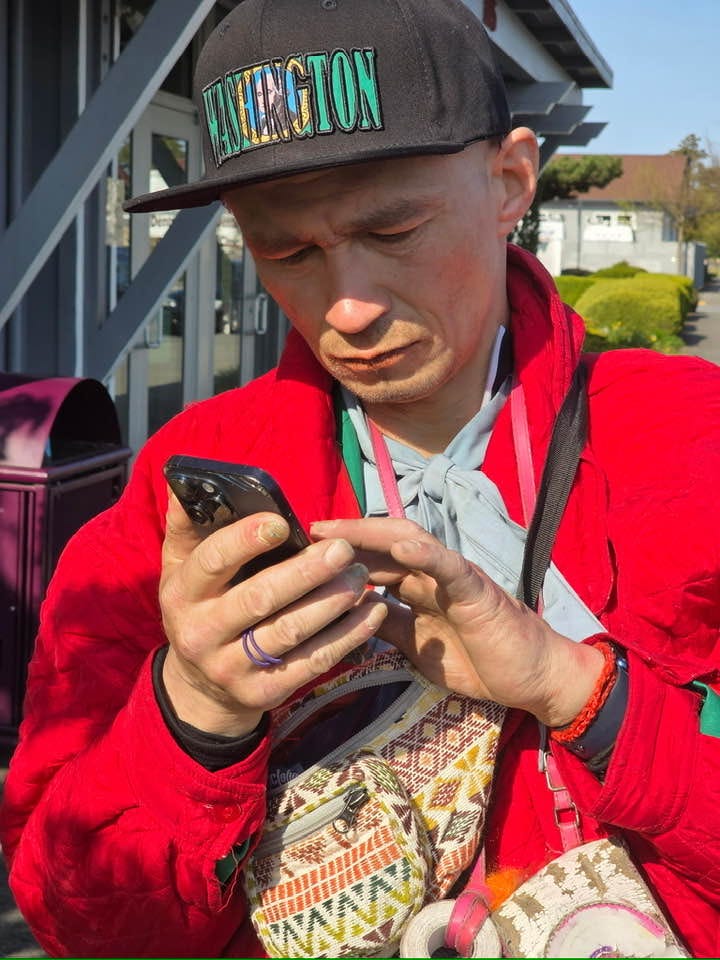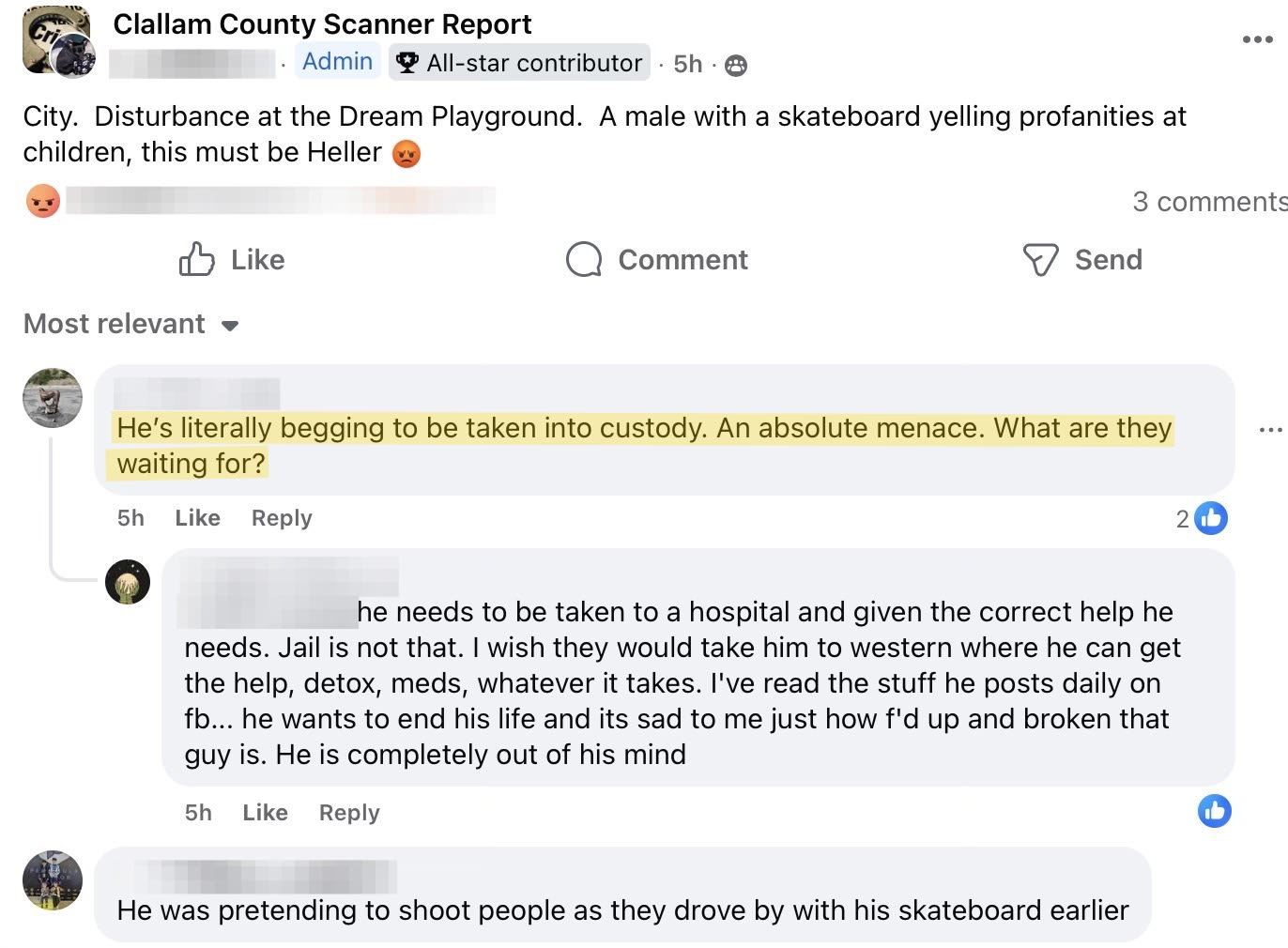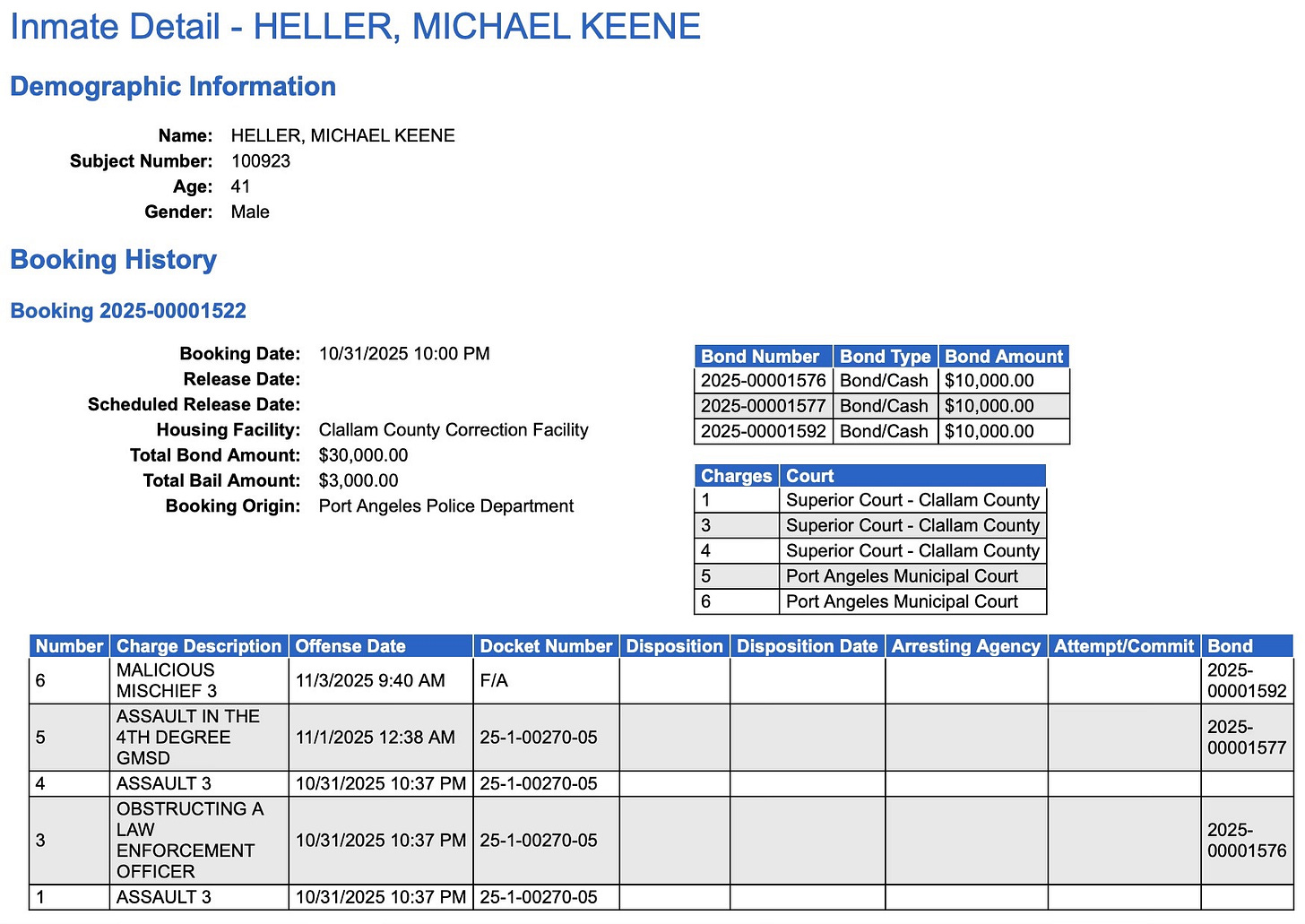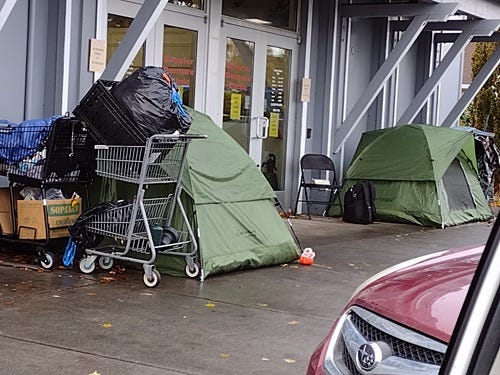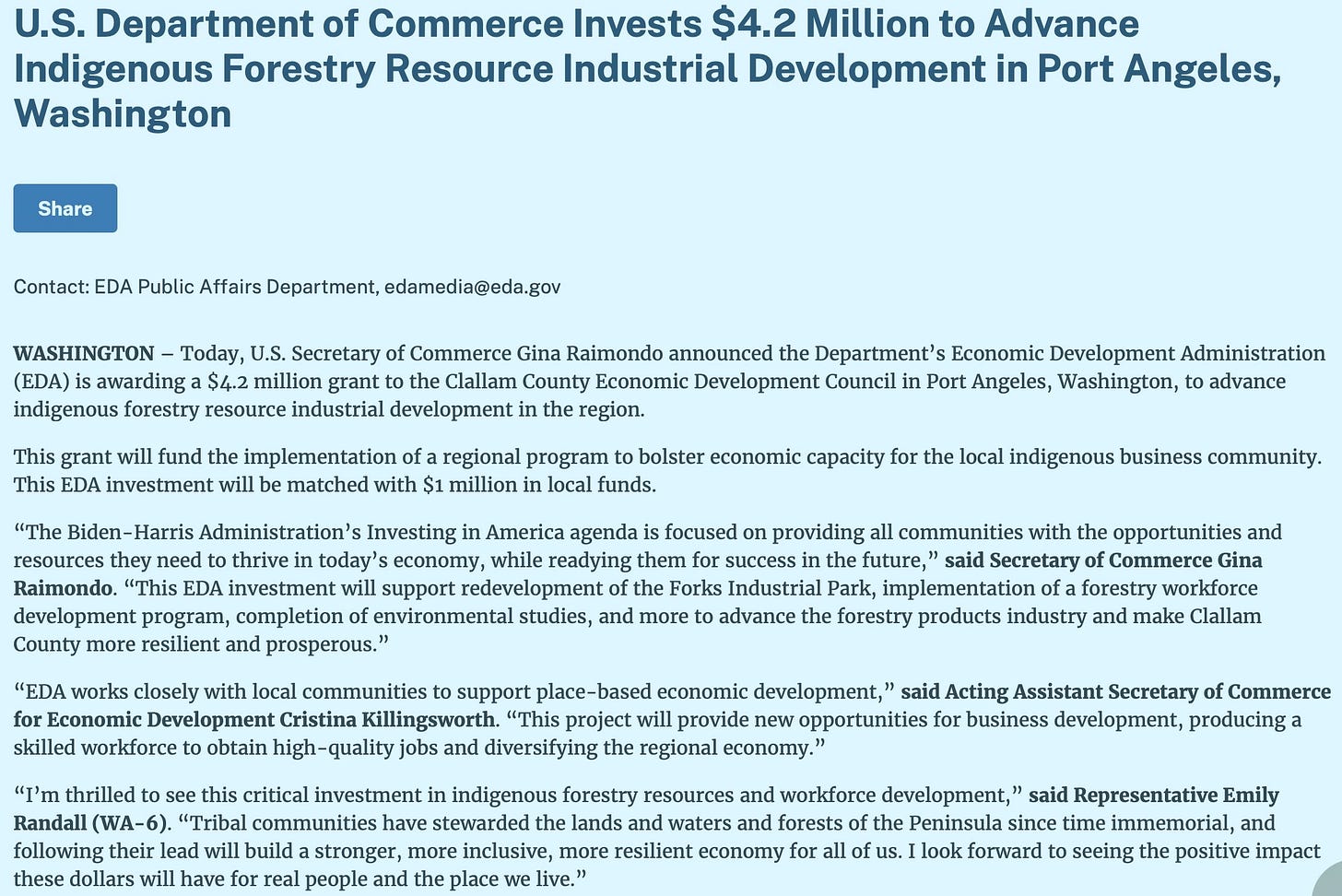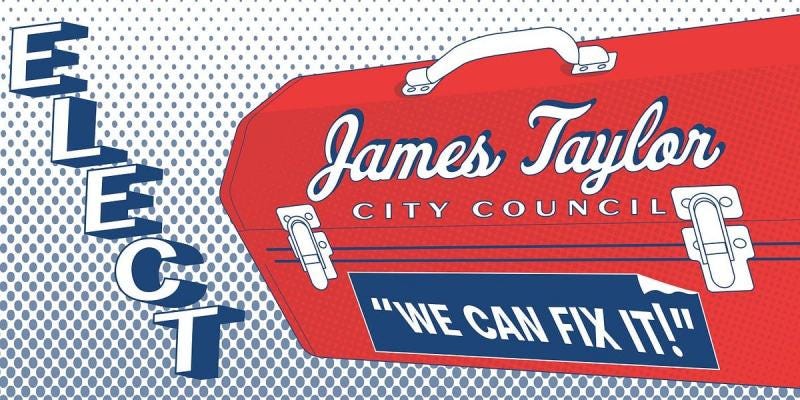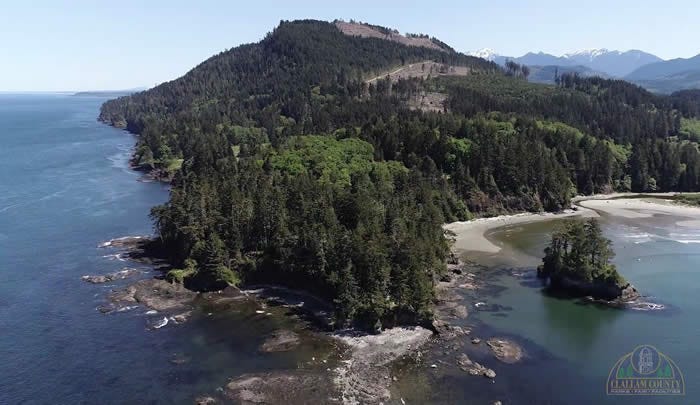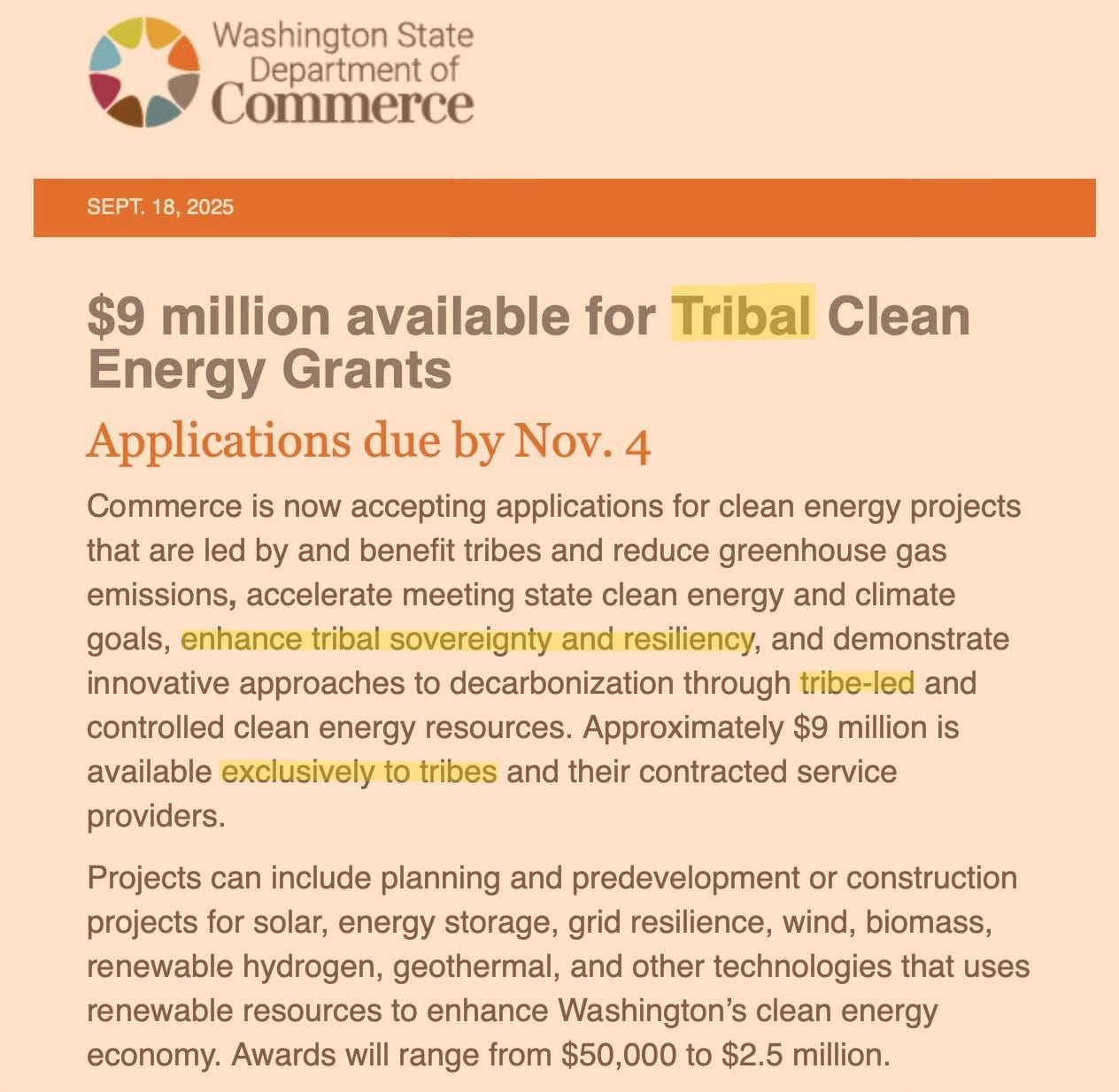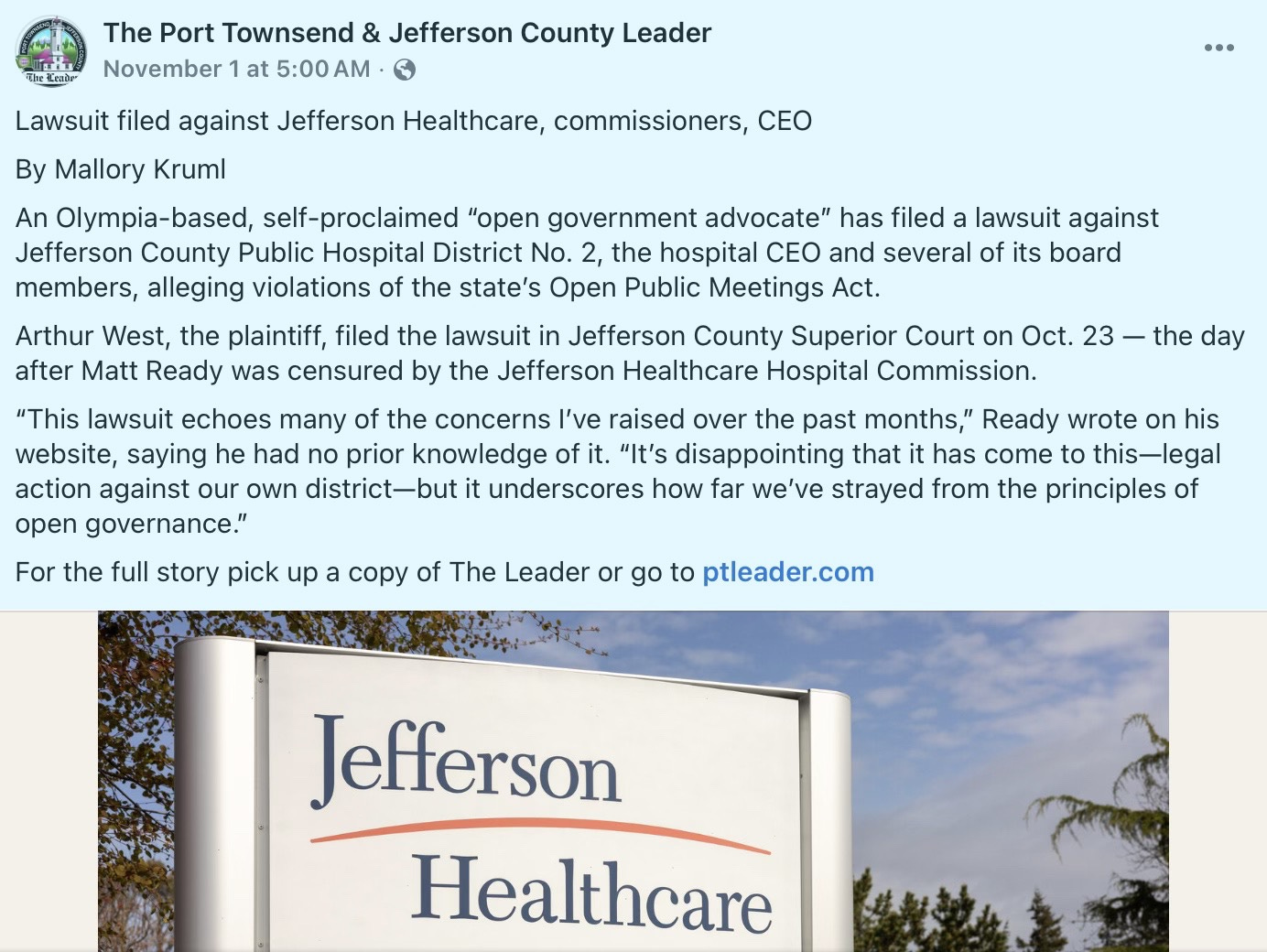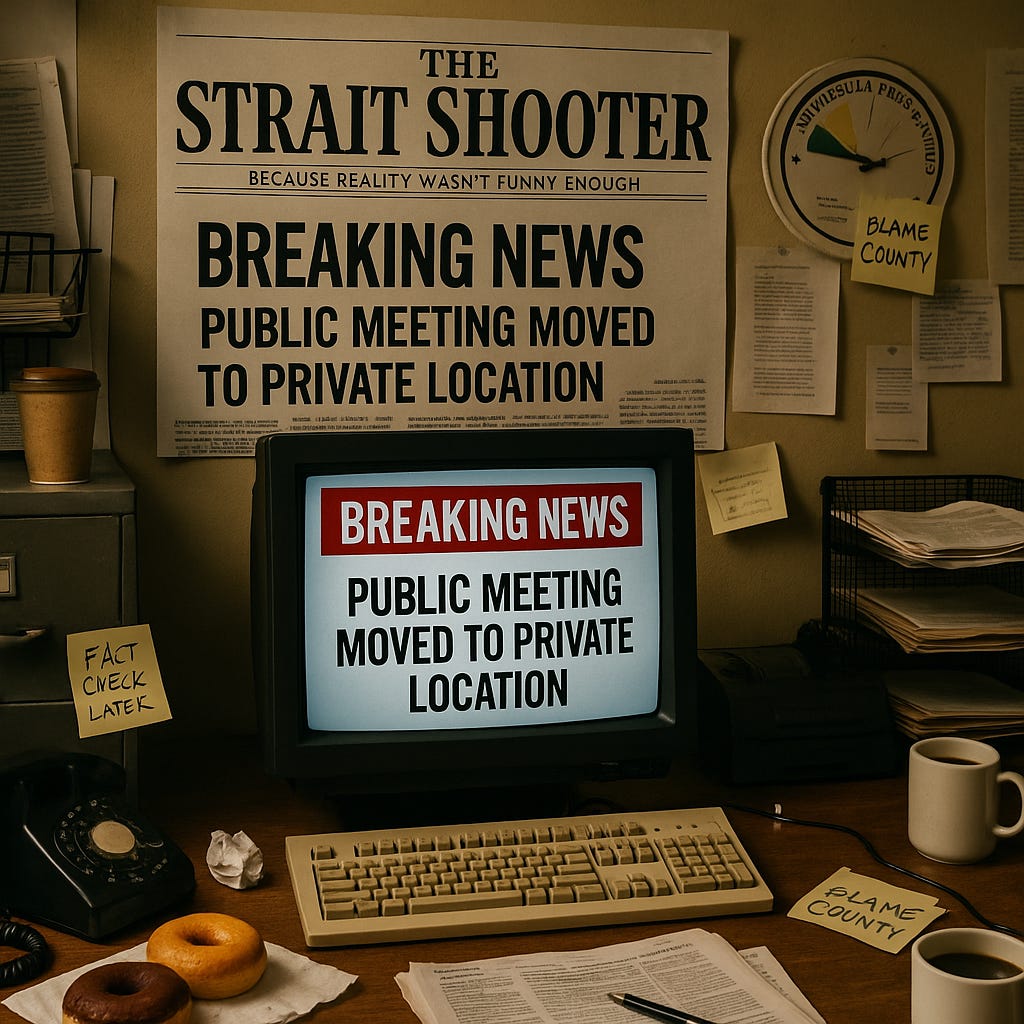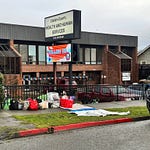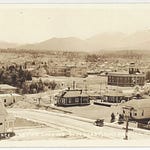From neglected safety warnings to questionable grant policies and disappearing transparency, this week’s stories show a county that talks about compassion, equity, and public service—but too often forgets to practice them. Here’s what your leaders aren’t prioritizing, and what citizens are noticing.
When Compassion Turns to Chaos
For five years, Michael Heller’s escalating behavior—from setting fires to running in traffic—was an open secret in Port Angeles. Residents warned online that it was only a matter of time before someone got hurt.
Those fears came true last week when police arrested Heller after reports of assaults at Haynes Park and Walgreens.
His charges include malicious mischief, multiple counts of assault, and obstructing an officer.
The community saw this coming. What we didn’t see was action. City officials and county agencies watched the pattern unfold but did little to intervene—they often choose a “harm reduction” model that translates into harm ignored.
If compassion means enabling self-destruction and public danger, maybe it’s time to redefine what compassion looks like. Protecting people—including the public—from predictable harm is the truest form of care.
The Encampment Next Door
Two tents now sit in front of Sheeler Denture Clinic—just steps from the Sequim Police Station and within sight of City Hall. For the business owner and their patients, it’s become an uneasy daily reality that is quickly growing.
This isn’t about a lack of sympathy for the unhoused; it’s about misplaced priorities. When small business owners who pay the taxes that fund our essential services can’t rely on basic order and sanitation, something is upside down.
City leaders love passing proclamations. But leadership isn’t about words—it’s about action, accountability, and keeping public spaces usable for everyone.
Five Sequim City Councilmembers are running unopposed.
A Better Way to Handle Waste: Mimi Dvorak’s Plan for Port Angeles
Candidate Marolee “Mimi” Smith Dvorak has a practical idea for cutting dump fees and creating jobs: adopt a “Reuse First” model like the one pioneered in Berkeley, California. There, a partnership between the city and Urban Ore salvages hundreds of tons of reusable materials each year while employing local workers.
Instead of sending usable items to the landfill, Port Angeles could partner with a private reuse company to sort, repair, and resell discarded materials. That means less landfill waste, lower fees, and more jobs. It’s a win for both the environment and the economy.
If you’re a Port Angeles voter, today’s your chance to support common-sense leadership. Vote for Mimi Dvorak—someone ready to turn waste into opportunity.
$4.2 Million for “Indigenous Forestry” — But What Does That Mean?
The U.S. Department of Commerce announced a $4.2 million grant to the Clallam County Economic Development Council to “advance Indigenous forestry resource industrial development” in Port Angeles. The funding, matched with $1 million in local money, will support redevelopment of the Forks Industrial Park, forestry workforce training, and environmental studies aimed at “making Clallam County more resilient and prosperous.”
Representative Emily Randall praised the award, saying, “Tribal communities have stewarded the lands and waters and forests of the Peninsula since time immemorial, and following their lead will build a stronger, more inclusive, more resilient economy for all of us.”
It’s an inspiring statement—but what exactly does it mean in practice? Is the Forks mill now considered “indigenous forestry”? How have tribes demonstrably stewarded forests better than generations of local foresters who have sustainably managed these lands for over a century? With public money at stake, these are questions worth asking before the check clears.
James Taylor: A Voice for Practical Change
Port Angeles City Council candidate James Taylor is offering what the status quo can’t: transparency, accountability, and common sense. In his latest piece, Taylor outlines how city policies have become detached from public priorities—and why the current council seems more focused on political optics than tangible results.
Taylor’s message is simple: restore balance to city government by returning power to the people it serves. Port Angeles doesn’t need more closed-door planning—it needs open-door leadership.
Today is Election Day. Ballots must be dropped off by 8 p.m.—make your voice count.
Your Parks, Your Voice
Clallam County is updating its Parks Master Plan, a 10-year roadmap for local parks, trails, and recreation facilities. These public forums will determine how well our parks serve residents and visitors alike.
Sequim – Guy Cole Community Center (202 N Blake Ave) Tuesday (Today!), November 4 at 10:00 a.m.
Port Angeles – Vern Burton Center (308 E 4th St)
Wednesday, November 5 at 5:00 p.m.
Sekiu – Community Center (42 Rice St)
Thursday, November 6 at 9:00 a.m.
Forks – Library (171 S Forks Ave)
Thursday, November 6 at 1:30 p.m.
If you love the North Olympic Peninsula’s outdoor spaces, show up and speak up. A good plan starts with the people who actually use it.
Tribal Grants, Statewide Costs
The Washington State Department of Commerce is distributing $9 million in “Tribal Clean Energy Grants”—funded entirely by the Climate Commitment Act (CCA), the same hidden gas tax that’s helped push fuel prices to the top in the nation.
Here’s the catch: only tribes are eligible, even though all Washingtonians pay for the program. That includes the Jamestown S’Klallam Tribe, which reported nearly $86 million in annual revenue. While families and small businesses pay higher prices for gas and groceries, government-backed corporations get exclusive access to public funds.
If equity means excluding everyone but the most politically connected, maybe it’s time to revisit the definition.
When Transparency Disappears
The Jamestown Tribe’s public newsletters and its interactive trust land map have both gone offline for “construction.” These tools were once the public’s only way to learn about the county’s second-largest employer and see which properties were being converted to tax-exempt trust status—a growing issue as the Tribe expands its footprint.
Tribal CEO Ron Allen has publicly stated the Tribe functions as a “public agency.” But if that’s true, why are its public-facing resources now restricted to tribal citizens and descendants only?
Transparency means sunlight, not secrecy. Taking down public information in the middle of major land conversions doesn’t inspire confidence—it raises red flags.
Open Meetings and Closed Minds
An Olympia-based watchdog has sued Jefferson Healthcare for alleged violations of the Open Public Meetings Act (OPMA).
The case mirrors ongoing transparency issues in Clallam County’s Charter Review Commission, where Chair Susan Fisch has repeatedly removed OPMA discussions from the agenda.
Recent revelations show that Chair Susan Fisch, County Commissioner Mark Ozias, Administrator Todd Mielke, and Sheriff Brian King authorized thousands in taxpayer-funded private security for Commissioner Jim Stoffer without commission approval or public engagement.
When government bodies hide behind procedure to protect insiders, they don’t just violate trust—they invite litigation. Public service isn’t a private club, but Clallam County’s leadership keeps acting like it is.
The Strait Shooter: When Satire Meets Reality
Need a laugh between headlines? Check out The Strait Shooter, the Olympic Peninsula’s sharpest satirical news source. Recent hits include “County Announces $1.2 Million Study to Determine Why Previous $1.1 Million Studies Failed” and “County Announces Bold Plan to Study the Study on the Previous Study.”
It’s funny because it’s true—or at least close enough to sting. The Strait Shooter offers a lighthearted counterpoint to CC Watchdog’s hard reporting, but both serve the same mission: shining the light (and laughing a little).
Sometimes humor exposes hypocrisy faster than hearings ever could.



